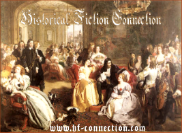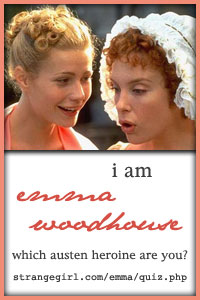3 roses
 I had been eying this one for a while, waiting for it to be released in the US. Once I finally got a copy I dove right in, eager to read about this enigma of a woman. While the novel was well written and fairly interesting, I wasn't overly impressed with it. For me, there just seemed to be something missing.
I had been eying this one for a while, waiting for it to be released in the US. Once I finally got a copy I dove right in, eager to read about this enigma of a woman. While the novel was well written and fairly interesting, I wasn't overly impressed with it. For me, there just seemed to be something missing.Alice Perrers was a tradesman's daughter and married a tradesman. However, after only a couple of years of wedded bliss, Alice's world is turned upside down when her husband disappears and she is forced to live at the court of Edward III as a handmaiden to Queen Philippa. She catches the king's eye and ends up in his bed and from that moment on she is a target for the royal family and commoners. After the king dies and she looses his protection, Alice must struggle to regain her life.
The novel had great potential. The catalyst that drives the action early in the story is the fact that Alice's husband and his family have a secret agreement with the king's mother, Isabella, and are being pursued by someone who wants their information. There really is a mystery here and I feel if this story line had persisted the novel would have been much better. However, that mystery soon gets lost in the world of silks and dresses and fashion once Alice is forced to Court. We never find out who "they" are (the people that are after the Perrers family) and it is really frustrating not to have a conclusion to that mystery. To be honest, that really was the only interesting thing throughout the story. While the author has obviously made a very good attempt to redefine Alice, to me the story was just ... boring. In history Alice has been portrayed as nothing but a harlot and a scheming gold-digger and Campion has attempted to give her story new life. She was apparently reviled in her own time and the author has tried to rehabilitate that reputation but the product of her labor is really a weak, very naive, almost goody-goody Alice who seems only concerned with fabrics. While I am doubtful that the real Alice was as horrible as history has portrayed her (history is, after all, written by the powerful and the powerful at this time hated her) I do not think she was as goody-goody as she comes across here. I think that is probably my biggest beef with the novel - the protagonist is not all that believable, thus making her hard to like and follow. The line that seems to drive Campion's narrative is Alice's "When had I a choice to be other than I was?" I can see the author's attempt to show the reader that perhaps Alice had no choice in what happened to her (which is entirely possible; royal ladies rarely had much say in their own lives and a commoner would have even less) but it really didn't come across as all that believable. I think it would have worked better for me if she wasn't constantly saying, after asking and receiving good, sound advice from various people, that she would take their advice to heart but then never attempting to change and just saying "well, I have no choice!" As the novel headed towards it conclusion and Alice was forced into an undesirable marriage and attempted to regain her property, I could feel some sympathy for her. She really was dealt a bad hand and was powerless to receive justice and you could almost feel the helplessness of her situation.
All in all the story was not badly written and it had great potential. The other characters in the book really did not grab my attention or make me care what happened to them; they just seemed to be there in order to move the story along. The relationship between Alice and Edward wasn't all that interesting either which was a disappointment. The descriptions of fabrics and fashions of the time were amazing and obviously well researched but they seemed to take up way too much space in the story. I thought this story did do a wonderful job of showing how a person's reputation can be completely twisted by history one way or another and how a commoner really was at the mercy of the royal family. I am certainly not sorry I read this book as it showed me that Alice might not have been the gold-digger she has always appeared to be but I thought the author could have done much more with certain aspects of the story. I think most readers will not have a problem with it but those who crave a bit more substance to a plot might come away disappointed.























I'm not sorry i read it either...it was ok, but WAY too long and hardly my favourite book of the year. Like you though, I'm glad to have read a different version of what she might have been like (as opposed to how history generally portrays her). Thanks for the review:)
ReplyDeleteI agree - too much fashion, not enough plot. I've got Vanora Bennett's The People's Queen on my TBR pile, which is also about Alice, so it'll be interesting to compare and contrast.
ReplyDelete